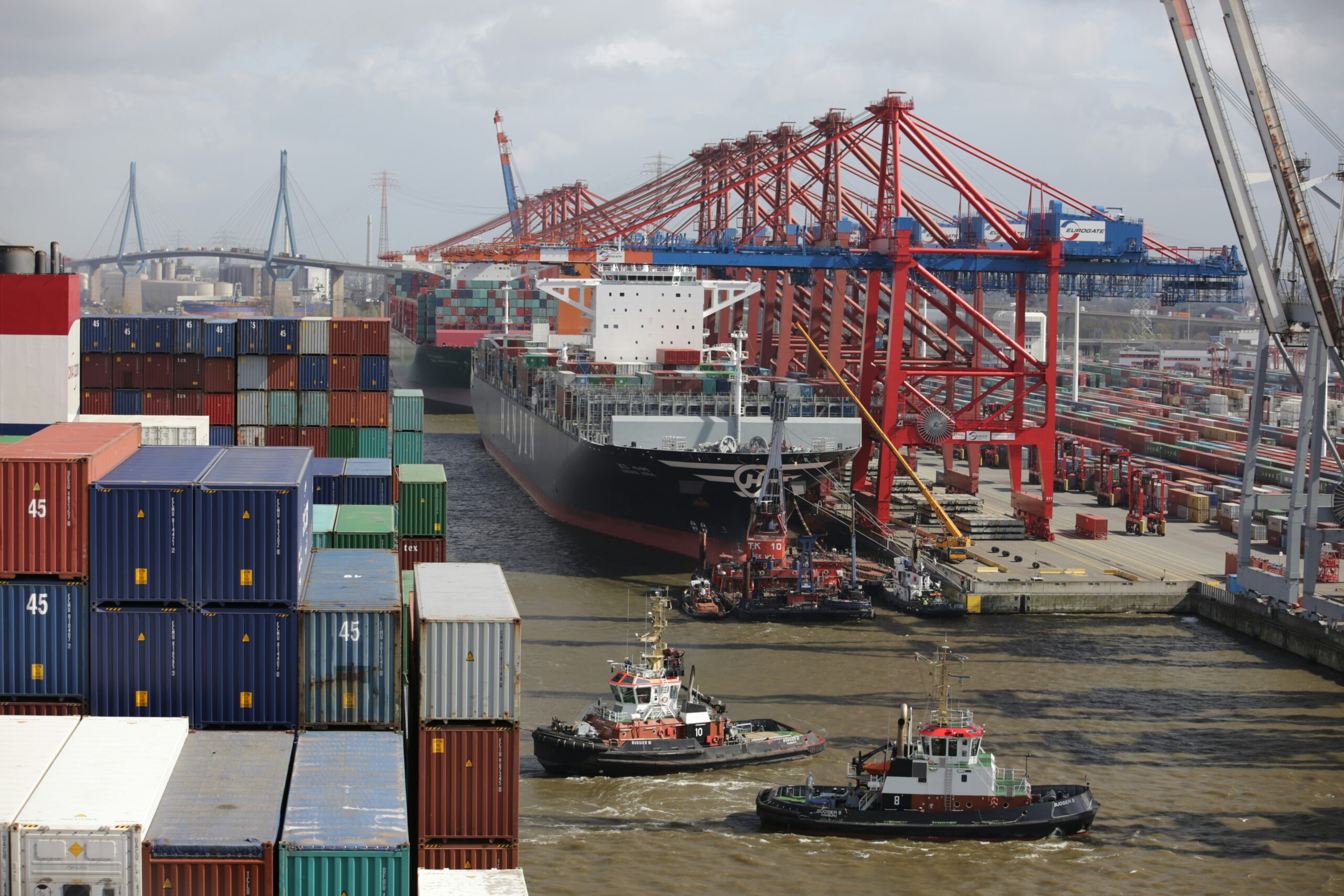Geopolitics and the Global Economy: Insights for 2024

Photo by John Simmons on Unsplash
Introduction to Geopolitics and Economics
Geopolitics is an interdisciplinary field that examines the impact of geographical, political, and economic factors on international relations. It plays a significant role in shaping the global economy, as nations and regions navigate complex interactions influenced by political decisions, resource distribution, and territorial disputes. In understanding the global economy, it is essential to recognize how these geopolitical dynamics can affect economic policies, trade networks, and overall financial markets.
The significance of geopolitics is underscored by its ability to dictate economic stability and growth. Political events, such as elections, shifts in government, or international conflicts, can create ripple effects that influence global market conditions. For instance, trade agreements and sanctions often stem from geopolitical strategies, directly impacting trade flows and investment decisions. As a result, businesses and investors must closely monitor geopolitical developments to anticipate potential risks and emerging opportunities within the global economy.
In today’s intricate world, various geopolitical factors, including power dynamics between major nations and regional conflicts, can significantly alter economic landscapes. As economies become more interconnected, the repercussions of local political decisions extend beyond borders, affecting global trade patterns. The ongoing tensions between nations may alter supply chains, impacting production costs and availability of goods.
As we look ahead to 2024, the complexities of geopolitics and economics will undoubtedly continue to evolve. Understanding these interconnections will be vital for policymakers, businesses, and investors alike. The world faces numerous challenges, including climate change, technological advancements, and shifting alliances that can reshape economic paradigms. A comprehensive grasp of geopolitics will enable stakeholders to navigate these uncertainties more effectively and foster resilience in the global economy.
Key Geopolitical Trends Heading into 2024
As we approach 2024, several significant geopolitical trends are poised to impact the global economy profoundly. One of the most notable shifts is the changing power dynamics among major nations. The ascent of emerging economies, particularly in Asia and Africa, is altering traditional geopolitical landscapes. Countries such as India and Nigeria are increasing their influence on global markets, thanks to their growing populations, technological advancements, and investment in infrastructure. This shift is not just a nominal increase in power; it redefines economic relationships and trade partnerships globally.
In parallel, we are witnessing a gradual decline in the influence of established powers like the United States and the European Union. This transition towards a multipolar world raises questions about the future of global governance, trade agreements, and economic stability. The emergence of new economic blocs, such as the BRICS nations, is indicative of this trend, providing alternative economic alliances and systems that challenge the status quo. Consequently, businesses and economies must adapt to a rapidly changing geopolitical environment that demands new strategies and partnerships.
Moreover, the prevalence of regional conflicts is another critical factor influencing the global economy in 2024. Tensions in areas like Eastern Europe, the South China Sea, and the Middle East not only create uncertainty but also disrupt global supply chains and energy markets. The ramifications of these conflicts extend beyond immediate geopolitical concerns, threatening economic stability and development worldwide. Nations and businesses must remain vigilant and responsive to the geopolitical landscape, considering its implications for trade routes, resource availability, and investment strategies.
In light of these trends, it is crucial for policymakers and business leaders to navigate the complexities of the geopolitical environment while being proactive in their approaches to mitigate risks and seize opportunities.
Impact of US-China Relations on the Global Economy
The relationship between the United States and China remains one of the defining elements of contemporary geopolitics, significantly influencing the global economy as we move into 2024. Ongoing trade tensions have created a complex environment, with tariffs and trade barriers affecting the flow of goods and services. A recent report indicates that these disputes could reshape supply chains, leading companies to diversify their manufacturing bases to mitigate risks associated with reliance on either nation. Furthermore, as companies seek alternatives, countries in Southeast Asia and beyond are likely to experience increased investment and economic growth.
In addition to trade, technological competition has become a pivotal arena in the US-China relationship. The race for technological dominance in areas such as artificial intelligence, telecommunications, and semiconductors has significant global implications. The US’s restrictions on Chinese tech firms and China’s efforts to become self-sufficient in technology will likely foster an environment of innovation while simultaneously creating divisions between nations based on technological alliances. Countries aligning with either the US or China may find their entire economic trajectories influenced, as investments channel in one direction or another based on perceived favorable policies.
The political alliances formed in this context also merit attention. Nations that rely heavily on China for trade, such as Australia, or those intertwined with US interests, may find their economic strategies altered as pressures mount from both sides. The interplay of US-China relations can adversely affect global markets, introducing volatility as investors respond to shifts in policy or incidents that strain diplomatic ties. As we approach 2024, understanding the multifaceted dimensions of US-China relations will be crucial for policymakers and economic analysts in forecasting global economic outcomes.
The Role of Europe in Global Economic Geopolitics
As we move closer to 2024, Europe’s position in the intricate tapestry of global economic geopolitics presents a landscape ripe with both challenges and opportunities. The European Union (EU) has been navigating increasingly tumultuous geopolitical waters, marked by rising tensions between major powers, particularly the United States, China, and Russia. In this context, the EU has sought to fortify its economic stability while addressing external threats that could undermine its position on the global stage.
One of the foremost challenges confronting Europe is the reconfiguration of its trade relationships, exacerbated by the aftermath of Brexit. The departure of the United Kingdom from the EU has necessitated a reassessment of diplomatic and economic ties, urging the EU to establish new partnerships and redefine existing agreements. This has led to increased emphasis on strengthening internal markets and fostering collaboration among member states, which is crucial for maintaining a unified economic front.
Additionally, Europe’s economic policies must reflect an agile response to external pressures. The EU has actively explored avenues for diversifying its supply chains, particularly in critical sectors such as technology and energy. This is vital for mitigating risks associated with over-reliance on a few trading partners and is indicative of a strategic shift towards greater economic resilience. Initiatives aimed at promoting innovation and sustainability are also central to Europe’s agenda, positioning the continent as a leader in these emerging sectors.
In conclusion, Europe’s role in global economic geopolitics in 2024 will be shaped by its ability to navigate external pressures, adapt to the ramifications of Brexit, and pursue coherent economic policies. These factors will ultimately determine the resilience and competitiveness of the EU’s economy within the broader international framework. Stakeholders must remain vigilant as the geopolitical landscape evolves, ensuring they leverage Europe’s unique strengths to fortify its global economic standing.
Emerging Markets and Geopolitical Challenges
Emerging markets are experiencing a significant intersection of economic advancement and geopolitical volatility, creating unique challenges that threaten their growth trajectories in 2024. Political instability remains a primary concern as governments in several emerging economies grapple with challenges such as corruption, terrorism, and socio-economic disparities. These issues can lead to a lack of investor confidence and deter foreign direct investment, which is crucial for the development of infrastructure and other sectors.
Furthermore, economic sanctions imposed by established economies pose a substantial barrier. For instance, countries facing unilateral sanctions may find their access to international markets severely limited, thereby stifling trade and economic cooperation. Such restrictions not only challenge the immediate financial health of these nations but also disrupt long-term economic planning, which is vital for sustained growth. The ability of emerging markets to navigate these sanctions through alternative trade partnerships may influence their economic resilience moving forward.
Foreign investment risks also loom large in the context of emerging economies. As multinational corporations reassess their global exposure, many may choose to divert their investments away from politically unstable regions. This scramble for safety can exacerbate existing economic hardships and limit growth potential. In 2024, emerging markets must find ways to mitigate these geopolitical pressures by fostering more stable political environments and creating incentives that attract foreign investments.
Despite these challenges, emerging markets are devising strategies to cope with the pressures they face. Initiatives aimed at strengthening governance, improving trade frameworks, and engaging with international partners to enhance economic ties could be pivotal. As these nations strive to stabilize their economies amidst geopolitical uncertainties, their overall economic growth will heavily depend on their ability to effectively address these multifaceted challenges.
The Influence of Technology and Cybersecurity on Economics
The evolving landscape of technology and its intersection with cybersecurity is increasingly shaping international relations and economic strategies. In 2024, the significance of technological advancements cannot be overstated, as nations confront new challenges and opportunities arising from innovation and digital transformation. Cybersecurity, a vital component of this technological evolution, plays a crucial role in safeguarding national interests and economic stability.
As global economies become more interconnected, the reliance on digital infrastructure grows, heightening the risk of cyber attacks. Such vulnerabilities can disrupt critical services, jeopardize sensitive data, and undermine consumer and investor confidence. In this context, the importance of robust cybersecurity measures is paramount, with countries investing heavily in protective technologies to safeguard their economic assets and strategic resources. This investment reflects a growing recognition that a secure digital environment is fundamental to sustaining economic growth.
Moreover, the influence of technology extends beyond mere protection against threats; it also serves as a catalyst for economic innovation and competition. Nations are in a continuous race to advance their technological capabilities, leading to strategic advantage in sectors such as artificial intelligence, blockchain, and cybersecurity itself. This technological race influences geopolitical dynamics, as countries vie for leadership in emerging technologies, which can dictate global economic patterns and cooperation.
Furthermore, cybersecurity considerations are increasingly integrated into international trade agreements and diplomatic negotiations. Issues such as data protection, intellectual property rights, and technology sharing are critical focal points in contemporary discussions among nations. As economic strategies are adjusted to account for technological and cybersecurity realities, the global interplay between tech and economics will likely become even more pronounced in 2024 and beyond. Ultimately, understanding this intersection will be essential for assessing future geopolitical developments and their implications for the global economy.
Sustainability and Climate Change in Geopolitical Contexts
The landscape of international relations is evolving as sustainability and climate change emerge at the forefront of geopolitical discussions. Nations worldwide are increasingly recognizing that environmental challenges are not merely scientific or ethical dilemmas; they are critical geopolitical issues that can significantly influence power dynamics and economic relations in 2024 and beyond. The impacts of climate change—including extreme weather events, resource scarcity, and migration—are reshaping traditional alliances and necessitating a reevaluation of national policies.
Countries are adopting a multifaceted approach to address climate change and promote sustainability. For instance, the European Union has positioned itself as a leader in environmental governance, implementing strategies aimed at achieving climate neutrality by 2050. This initiative not only transforms domestic policy frameworks but also influences external economic relations, as the EU increasingly ties trade agreements to sustainability criteria. Similarly, emerging economies in Asia are experiencing pressure to balance economic growth with environmental concerns, leading to innovative sustainable practices that may enhance their global competitiveness.
International cooperation plays a crucial role in addressing these pressing challenges, with numerous organizations and platforms facilitating dialogue and action on sustainability issues. For example, the United Nations Framework Convention on Climate Change (UNFCCC) has established frameworks that encourage collaborative efforts, pushing nations to share best practices and mobilize financial resources for climate adaptation initiatives. The emphasis on multilateralism underscores that no country can tackle these global challenges alone, highlighting the importance of diplomacy and alliances that prioritize environmental sustainability.
The relationship between sustainability and economic relations in 2024 is expected to deepen, as countries assess the economic implications of climate policies. Investment in green technologies and sustainable infrastructure is projected to be a significant driver of economic growth, requiring nations to adapt their strategies accordingly. Therefore, a forward-thinking approach towards sustainability is not only a necessity for environmental stewardship but a critical component of maintaining competitive economic standing in the global arena.
The Future of Global Trade Agreements
In recent years, the global trade landscape has been significantly influenced by geopolitical tensions, prompting nations to reevaluate trade agreements and alliances. As we approach 2024, it is increasingly clear that these dynamics will play a crucial role in shaping trade policies worldwide. The emergence of new trade agreements, coupled with the imposition of tariffs and economic sanctions, are reshaping the way countries interact and engage in commerce.
One of the most notable trends is the rise of regional trade agreements as countries seek to strengthen their economic ties amidst uncertainties surrounding multilateral agreements. Nations are forming alliances that reflect current geopolitical strategies, resulting in a more fragmented trade environment. For instance, countries in Asia-Pacific are increasingly engaging in pacts like the Comprehensive and Progressive Agreement for Trans-Pacific Partnership (CPTPP), while those in Europe are pursuing bilateral agreements to mitigate the impacts of shifts in trade norms.
Additionally, tariff wars have become a prominent feature of the current geopolitical climate. Notably, the ongoing sanctions between major global powers have not only affected trade flows but also prompted sectors to adapt rapidly to new regulations. This situation has created a complex web of obligations and restrictions that require careful navigation by businesses. Companies are compelled to diversify their supply chains, looking for alternatives to mitigate risks associated with traditional trading partners.
The implications of these developments for global economic growth are significant. As nations reposition their trade strategies, businesses may face increased costs and uncertainty. Nevertheless, there remains an opportunity for innovative practices and partnerships to emerge within this transformed landscape. The future of global trade agreements will hinge on how nations balance their geopolitical interests with the necessity for cooperative economic frameworks.
Conclusion: Preparing for a Complex Economic Landscape
The intricate relationship between geopolitics and the global economy has become increasingly pronounced as we approach 2024. As nations grapple with shifting alliances, trade tensions, and geopolitical strife, it is essential to understand the ramifications of these dynamics on economic conditions worldwide. The insights derived from this interplay can serve as a crucial guide for businesses, policymakers, and investors aiming to navigate an uncertain fiscal environment.
Firstly, businesses must adapt to changing geopolitical landscapes that can impact supply chains, market accessibility, and operational costs. As countries impose tariffs or engage in economic sanctions, companies must remain agile, re-evaluating their strategies to mitigate risks. This includes diversifying sourcing options and enhancing local production capabilities, which may provide greater resilience against geopolitical uncertainties. Additionally, a comprehensive understanding of regional instability and political changes will allow firms to make informed decisions that align with their long-term objectives.
For policymakers, recognizing the intricate link between geopolitics and economic outcomes is vital in crafting sound policies that foster stability and growth. The ability to anticipate shifts in global dynamics enables governments to adjust regulatory frameworks and trade agreements accordingly, enhancing economic security. Furthermore, fostering international cooperation can help mitigate the adverse effects of geopolitical tensions, ultimately benefiting economic performance on a larger scale.
Investors also bear the responsibility of comprehending these multifaceted interactions. With potential market volatility on the horizon due to geopolitical factors, an informed investment strategy is crucial. Investors should monitor geopolitical developments closely, as they can dramatically influence market conditions and asset valuations. In this regard, diversification and a balanced portfolio can serve as effective tools for managing risk.
In summary, the interconnected nature of geopolitics and the global economy willrequire all stakeholders to stay informed and adaptable as we transition into 2024. By prioritizing a strategic approach that encompasses awareness of these dynamics, businesses, policymakers, and investors can better prepare for the complexities ahead.






